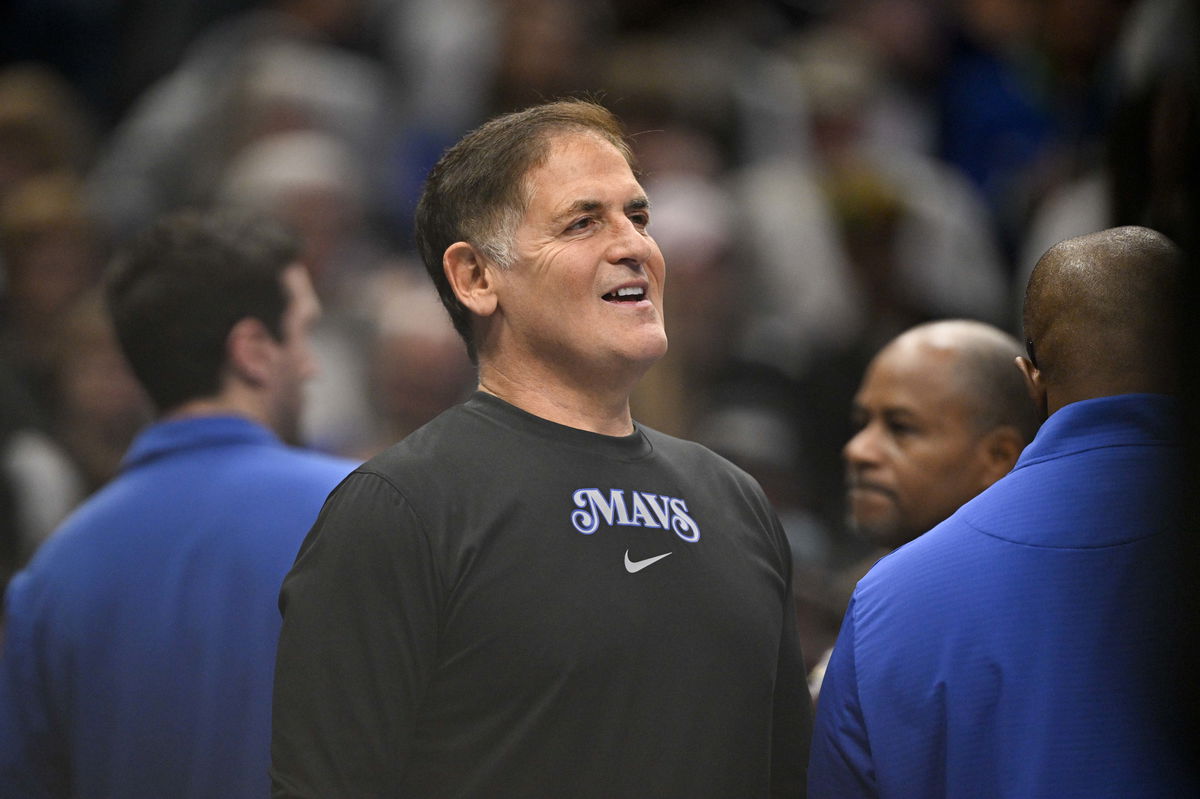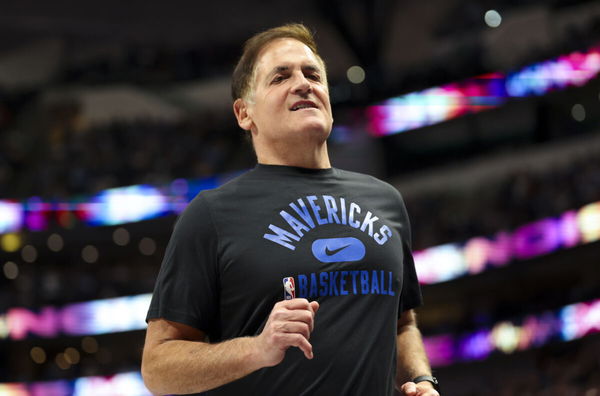
Imago
Jan 12, 2025; Dallas, Texas, USA; Mark Cuban looks on during the second quarter between the Dallas Mavericks and the Denver Nuggets at the American Airlines Center. Mandatory Credit: Jerome Miron-Imagn Images

Imago
Jan 12, 2025; Dallas, Texas, USA; Mark Cuban looks on during the second quarter between the Dallas Mavericks and the Denver Nuggets at the American Airlines Center. Mandatory Credit: Jerome Miron-Imagn Images

Imago
Jan 12, 2025; Dallas, Texas, USA; Mark Cuban looks on during the second quarter between the Dallas Mavericks and the Denver Nuggets at the American Airlines Center. Mandatory Credit: Jerome Miron-Imagn Images

Imago
Jan 12, 2025; Dallas, Texas, USA; Mark Cuban looks on during the second quarter between the Dallas Mavericks and the Denver Nuggets at the American Airlines Center. Mandatory Credit: Jerome Miron-Imagn Images
The Dallas Mavericks have undergone significant turmoil since Mark Cuban sold his majority stake in the franchise in late 2023. The subsequent trade of superstar Luka Dončić to the Los Angeles Lakers sparked widespread anger among the fanbase, leading to protests and a palpable sense of disconnect. This period has been marked by a dramatic shift in the relationship between the organization and its supporters, a bond Cuban himself had famously cultivated over his decades as the team’s charismatic owner.
Watch What’s Trending Now!
The situation has drawn commentary from various figures in the basketball world, including those with close ties to the league’s biggest stars. Jason Gallagher, a key business partner of LeBron James through their work at ThreeFourTwo Productions, has been a vocal critic of how the transition has been handled. As an Emmy award-winning director and a lifelong Mavericks fan himself, Gallagher’s perspective carries a unique blend of professional insight and personal investment in the franchise’s legacy.
All Things NBA took to YouTube and uploaded a video featuring Gallagher, who did not hold back in his assessment. He specifically targeted comments Cuban made about fan toxicity being a factor in his decision to sell the team. “I find Cuban’s perspective on this to be utterly nauseating,” Gallagher stated. “Just I find him to be incredibly disrespectful to fans. Like I can’t believe this guy’s saying what he’s saying out loud.”

Imago
Nov 6, 2024; Dallas, Texas, USA; Dallas Mavericks minority owner Mark Cuban during the first half against the Chicago Bulls at American Airlines Center. Mandatory Credit: Kevin Jairaj-Imagn Images
Gallagher highlighted the deep irony he saw in Cuban’s criticism. He pointed out that Cuban built a winning culture in Dallas that naturally led to high fan expectations. “It’s like really really because you’re you when you bought the team, Mark Cuban. No one cared and you developed a franchise that has now won so much that the fan base expects winning and excellence,” he argued calling adding when Mark Cuban quoted “Well, you know, part of why I sold is because um you know, the the fans have just gotten so toxic.”
This fundamental disagreement over the nature of fan passion forms the core of his critique, framing Cuban’s comments as a betrayal of the very community he helped create.
This public condemnation from a respected industry figure underscores the growing rift between the Mavericks’ old guard and its supporters. The criticism gains further weight from troubling revelations emerging from within the organization itself.
Inside Look: An Organization Adrift
The internal problems began almost immediately after the Adelson family acquired the team. Mike Marshall, the Mavericks’ former VP of Content, appeared on The Dumb Zone podcast and revealed a significant red flag. He stated that despite the team’s run to the NBA Finals, employees did not receive playoff bonuses, a standard practice across the league.
Marshall described the internal environment as “very confusing for everybody internally. Extremely confusing.” This confusion was compounded by Mark Cuban’s fading presence. Despite retaining a 27% stake and a role in basketball operations, Marshall claimed Cuban’s involvement dwindled to almost nothing, characterizing it as a “slow divorce” from the franchise he once built.
The former executive also shed light on Cuban’s management style during his tenure, noting he “wasn’t really hands on with the business side consistently.” While accessible via email, his physical presence in meetings was rare. This hands-off approach at the business level may have contributed to a lack of preparedness for the cultural shift that occurred under the new, less personable ownership.

